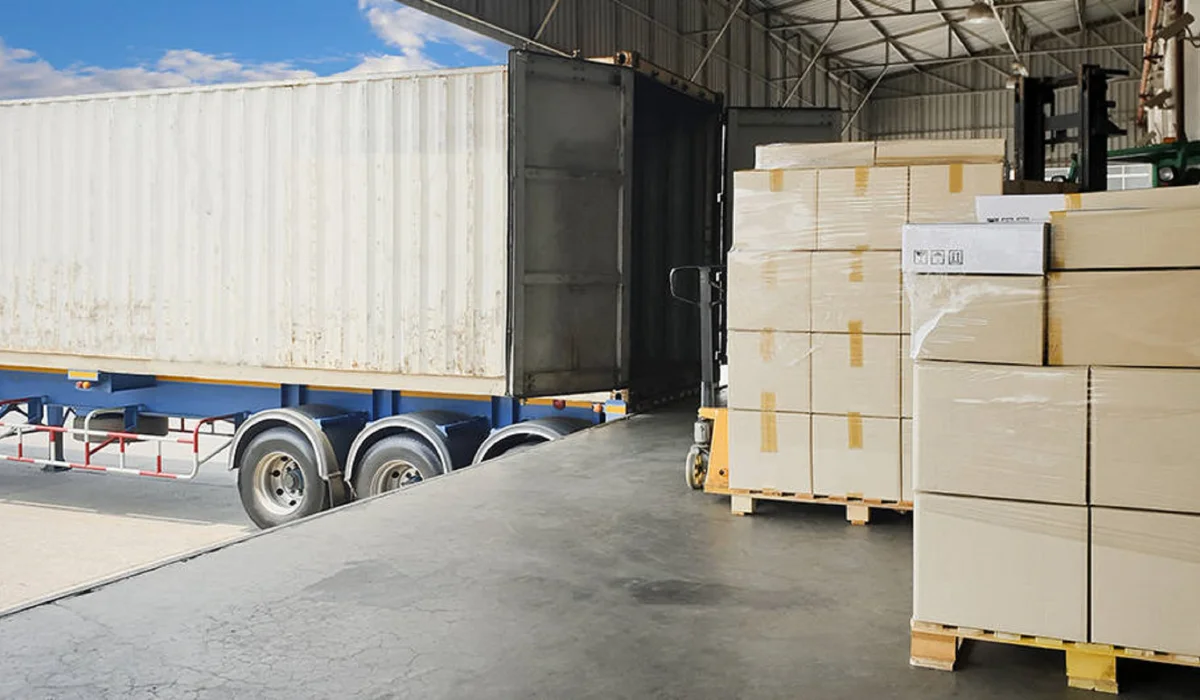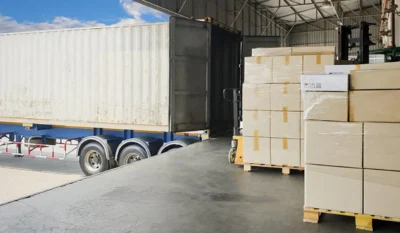In 2024, U.S. Department of Transportation partners conducted nearly 3 million roadside inspections of commercial motor vehicles and drivers nationwide. That volume makes one thing clear: DOT compliance is not an occasional event. It is a constant enforcement reality for trucking fleets.
As a result, DOT compliance no longer lives in binders. It lives in your systems. The U.S. Department of Transportation and the Federal Motor Carrier Safety Administration (FMCSA) expect electronic recordkeeping, clean exports, and traceable audit trails tied to each USDOT number, driver, and commercial motor vehicle.
This turns compliance into a systems problem. When driver qualification files, hours-of-service logs, vehicle inspection reports, and safety documentation are scattered across ELD tools, a TMS, email, and shared drives, audits slow down, and risk rises. Teams waste time reconciling records, and small gaps turn into findings.
When you map compliance requirements to the systems that store the proof, preparation becomes predictable. This guide breaks down what DOT audits require, where records should live digitally, and which IT controls keep fleets audit-ready under constant scrutiny.
Key takeaways
- Centralized, searchable records make DOT audits faster and less disruptive.
- Access controls, retention, and recovery prevent last-minute audit panic.
- Shared logins and unmanaged vendor access create avoidable audit risk.
The DOT audit outputs fleets must be able to produce
FMCSA compliance reviews test whether you can produce complete, consistent records on demand. Auditors are not looking for good intentions. They are looking for proof that you follow FMCSA rules and DOT regulations across drivers, vehicles, and operations.
Your job is to make sure records are (1) complete, (2) searchable, (3) time-stamped, and (4) tied to the right driver, vehicle, and trip. This is the difference between a routine request and a scramble.
Driver qualification and onboarding documents (where they live digitally)
In the trucking industry, more than $100 million in fines are issued each year for DOT record-keeping violations, underscoring the importance of complete driver qualification and onboarding documentation.
Driver qualification is a primary audit focus because it proves you put qualified people behind the wheel. A driver qualification file should include the commercial driver’s license, medical examiner’s certificate, pre-employment checks, the driver’s driving record, and ongoing documentation, such as periodic reviews.
If you run hazmat or hazardous materials loads, qualification documentation often expands to cover training, endorsements, and placarding requirements. If a driver operates under exemptions, you also need the supporting documentation in the same place, not buried in email.
Digitally, the best practice is to use a single folder or record per driver qualification file in a document system with consistent naming, tagging, and expiration tracking. That structure keeps driver compliance evidence retrievable during audits and investigations.
HOS/ELD exports and supporting logs
FMCSA data show that in 2024, there were 2,932,100 roadside truck inspections, many of which scrutinize HOS records and ELD exports for compliance.
Hours-of-service records need to be complete and easy to export. Your ELD or other electronic logging devices must support accurate HOS logs, annotations, and edit histories so reviewers can see what changed and why.
This is where real-time visibility matters operationally and defensively. If your safety team can review HOS exceptions in real-time, you reduce last-minute corrections that create questions later. Your supporting documents should align with the same trips in the TMS or dispatch workflow so the HOS story matches the operational story.
A strong setup links driver ID, vehicle ID, and trip identifiers across systems, so exports do not require manual cleanup.
Maintenance/inspection documentation + proof of remediation
FMCSA data show that approximately 6–7% of trucks were placed out of service during 2024 roadside inspections, reinforcing the importance of accessible, complete maintenance and inspection records.
Vehicle inspection and maintenance are core pillars of DOT compliance because they directly tie to motor carrier safety outcomes. For each CMV, you need inspection reports, defect notes, work orders, and proof of remediation showing how the issues were addressed and when the vehicle returned to service.
The IT requirement is consistency. If inspection reports live in one tool, repairs live in another, and photos live in text threads, you create avoidable gaps. Index records by unit number, VIN, date, and location. That makes it easier to produce evidence during compliance reviews, and it reduces risk during roadside events.
Safety/training records and policy evidence
Audits can include training, testing, and policy proof, mainly when incidents occur. This can consist of alcohol testing documentation, drug test records, reasonable suspicion training for supervisors, and post-accident documentation.
If you haul hazardous materials, you also need hazmat training records and proof of placarding compliance. These records often come from multiple vendors, which is why a central repository matters.
When safety regulations evolve, your policy acknowledgments and training completion records become your evidence trail. Store policy versions, sign-offs, and completion dates so you can show what was required at the time, not what you think happened.
The core IT systems behind DOT compliance
DOT compliance is easier when systems work like a single evidence pipeline. You are not just collecting records. You are maintaining the chain of custody: who created them, who changed them, and whether they can be trusted.
ELD/telematics platforms (availability, exports, access)
Your ELD platform is the system of record for HOS. It must be available, exportable, and access-controlled. If the platform is hard to export from, you will waste hours during compliance reviews. If access is too loose, you risk edits that are hard to explain.
Your IT team should confirm that electronic logging devices are configured consistently across the fleet, including driver identifiers, vehicle assignments, and time synchronization. That reduces discrepancies that trigger follow-up questions.
Dispatch/TMS workflows (roles, approvals, audit trails)
Dispatch and TMS workflows connect trips to drivers and equipment. In audits, that matters because it links operational facts to the compliance record. If dispatchers can overwrite fields without an audit trail, you lose credibility.
Define roles and approvals so changes are attributable. That supports recordkeeping integrity and reduces internal confusion during investigations. It also helps streamline how you answer common requests by letting you pull the trip context without calling three people.
Document management/storage (versioning, indexing, retention)
A document management system is where your compliance program either works or breaks. It should support versioning, indexing, retention, and fast retrieval. This is where driver records, driver qualification files, inspection reports, training certificates, alcohol testing paperwork, and post-accident packages should live.
If the system supports structured metadata, use it. Index by driver, CMV, USDOT number, document type, date, and expiration. That turns compliance from tribal knowledge into a repeatable process.
Identity systems (who can access/alter compliance records)
FMCSA regulations require carriers to retain key driver records (such as MVRs and qualification files) for the duration of employment and at least three years after a driver leaves, reinforcing strong retention and identity access controls.
Identity and access management determine whether your records are trustworthy. Unique accounts, centralized authentication, and controlled permissions show who accessed or changed a record and when.
This is not just cybersecurity hygiene. It is an audit defense. When you can show who changed a log, you reduce suspicion and speed up resolution.
Controls that reduce audit pain and security risk
Controls are what make compliance evidence stable under pressure. They protect integrity, availability, and accountability, which directly support DOT compliance.
Unique accounts + MFA where appropriate
Shared logins weaken audit trails. Unique accounts make accountability clear. Multi-factor authentication (MFA) helps protect systems accessed remotely, especially dispatch, document repositories, and admin consoles.
This reduces the risk of unauthorized access and makes it easier to prove that your audit trail is real.
Least privilege for dispatch, safety, and admin roles
Least privilege means people can do their job without being able to change everything. Dispatchers should not be able to rewrite safety records. Vendors should not have permanent admin access. Safety teams should have visibility without broad delete permissions.
This supports driver compliance and reduces accidental edits that create audit gaps.
Data retention + backup fundamentals (and why restore tests matter)
Retention and backup policies should map to DOT regulations and your internal compliance requirements. It is not enough to say you have backups. You need verified restores.
Restore tests prove you can recover driver qualification files, HOS logs, vehicle inspection history, and training evidence after outages or incidents. Without restore testing, recordkeeping is theoretical.
Vendor access management (time-bound access, logging)
Vendor access is a common failure point. Time-bound access, logging, and periodic reviews reduce the risk of orphaned accounts. Vendors often support ELD, TMS, or compliance services tools, so access to these tools needs guardrails.
This is one of the simplest ways to reduce audit anxiety without changing your operations.
Common failure modes (And how to spot them early)
Most audit pain comes from a few repeatable problems. If you spot them early, you can correct them before they show up in a compliance review.
Shared dispatcher logins and orphaned vendor accounts
Shared dispatcher logins erase accountability. Orphaned vendor accounts keep access alive long after the relationship ends. Both create situations in which records can be altered, and no one can prove who did what.
Fixing this is often the fastest way to become more DOT-compliant.
Missing records due to non-integrated tools
When systems do not integrate, records fall through gaps. Common examples include vehicle inspection forms stored on phones, repairs tracked in spreadsheets, or post-accident documentation trapped in email.
Integration is not just convenience. It is how you protect the continuity of compliance evidence.
“We have backups” without verified restores
This is one of the most dangerous assumptions in IT. Backups that cannot restore are not backups. If a ransomware event or outage hits, you may lose the ability to produce records during a compliance review.
Restore testing is the control that turns backup claims into recovery capability.
DOT compliance readiness checklist (Fast self-assessment)
Run these checks quarterly. Treat them like drills, not paperwork. They also serve as internal FAQs, standardizing what “audit-ready” means across safety, ops, and IT.
“Can we produce X within 24 hours?” test
Pick a driver, a CMV, and a recent set of trips. Can you produce the driver qualification file, HOS logs, inspection reports, maintenance remediation records, and training records within 24 hours, all tied to the correct USDOT number?
If you cannot, document exactly where the process broke: system location, permissions, missing index, or missing retention.
“Who can change records?” test
List who can create, edit, approve, or delete key records. Confirm there are unique accounts, and confirm the audit trail shows who changed what and when.
This is a direct test of whether your evidence is defensible under FMCSA rules.
“Can we recover after an incident?” test
Assume one system goes down, such as your document repository or ELD export capability. Can you restore critical recordkeeping data quickly enough to respond to requests?
DOT inspection rules mandate that inspection reports be delivered to carriers within 24 hours and retained for at least 12 months, a useful benchmark for internal readiness drills.
Test your backups with restores. Confirm you can rebuild a complete audit packet without heroic effort.
Why Keystone helps trucking companies stay audit-ready without disruption
Keystone supports DOT compliance by aligning your systems and controls around audit-readiness, without breaking dispatch workflows.
Hardens access + remote connectivity for dispatch/ops without breaking workflows
Keystone helps design secure access that works for real operations. That includes identity controls, role-based access, and secure remote connectivity so dispatch and safety teams can work without cutting corners.
This reduces shared logins, strengthens audit trails, and supports real-time visibility without turning daily work into a hassle.
Sets retention/backup routines that protect compliance evidence
Keystone helps set retention and backup routines that protect compliance records across driver qualification files, HOS data, vehicle inspection documentation, vehicle maintenance records, and training evidence.
The goal is simple: if DOT requires it, you can produce it. If an incident happens, you can recover it.
Creates repeatable checks so readiness isn’t dependent on one person
Keystone helps build repeatable checks that operational teams can run consistently. That reduces the risk that compliance lives in one person’s head.
It also helps streamline audit preparation, because the process stays stable even when staffing changes.
Final thoughts: Make traceability and recovery the default
DOT compliance is simpler when IT is designed for traceability and recovery. When your systems support recordkeeping, controlled access, retention, and restore-tested backups, compliance reviews become predictable.
Request a DOT compliance system readiness review to evaluate your records, access controls, retention, and recovery before an audit forces the issue.
FAQs
How does IT support improve DOT compliance audits?
IT support improves DOT compliance by centralizing records and enforcing access controls, retention policies, and audit trails. This lets you produce driver qualification, HOS, and inspection records quickly. Co-managed IT keeps those controls consistent as systems and vendors change.
Which IT systems must remain DOT-compliant?
DOT compliance depends on ELD systems, dispatch or TMS tools, document storage, and identity access controls. These systems must support clean exports, traceability, and controlled edits. An IT partner helps align them without disrupting operations.
How does co-managed IT reduce DOT compliance risk?
Co-managed IT reduces DOT compliance risk by preventing shared logins, missing records, and failed recoveries. Your internal team runs operations, while the IT partner hardens systems and tests readiness. This keeps audits predictable instead of reactive.




